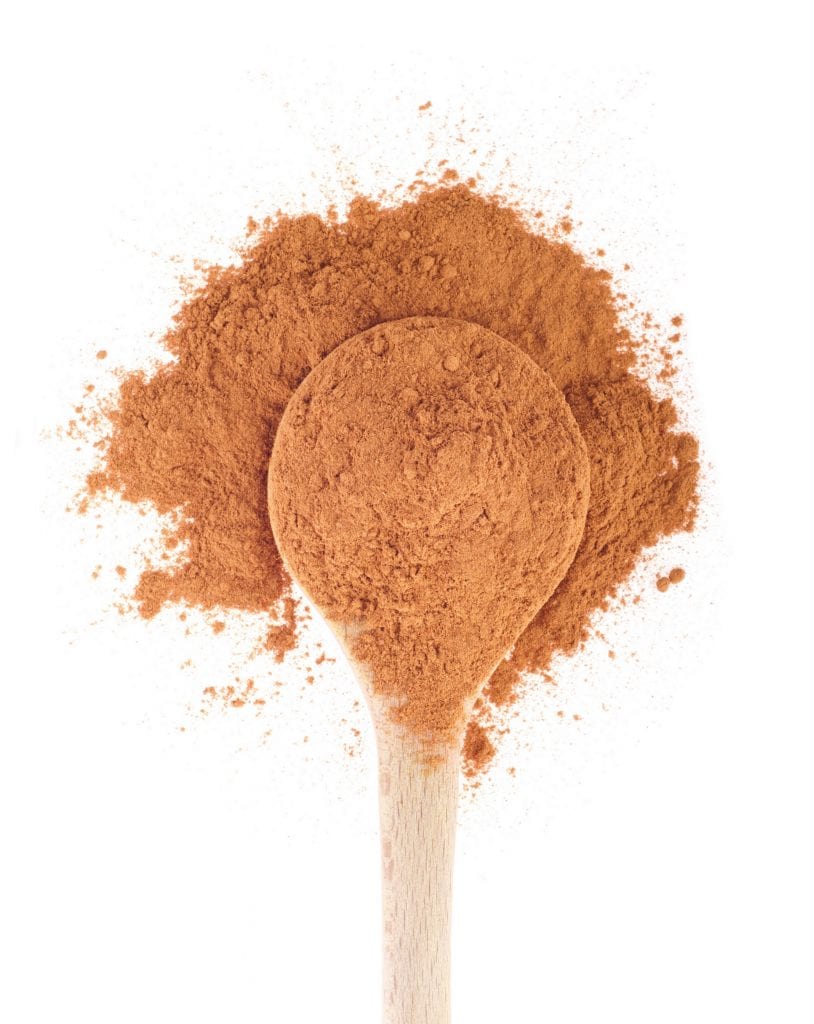Pepper plant pests and disease are just waiting for the opportunity to make an appearance. Sometimes things happen beyond our control. Fortunately, you can follow some tried-and-true practices to prevent a lot of these issues.
So you may be wondering what your options are. If you’re growing your own peppers (or other foods), you probably don’t want to contaminate your harvest with chemical pesticides.
You don’t have to!
Below, you’ll find my best pest and disease control methods. These organic solutions help put a stop to pepper plant pests and diseases before things get out of hand.
Protect Indoor Pepper Seedlings and Pepper Plants
For your indoor seedlings, you have to be especially vigilant in making sure they don’t suffer from disease like damping-off. This often takes the form of discolored, wilting seedlings that quickly fall over and die.
Chamomile Tea
Make a weak chamomile tea solution and add it to the water you give your plants to help prevent bacteria.
Do this every single time you water.
You wouldn’t believe what a difference this makes!

Cinnamon
Add cinnamon to the top of the soil line to prevent mold.
Be sure to do this for all indoor seedlings and any pepper plants that you may be winterizing indoors.
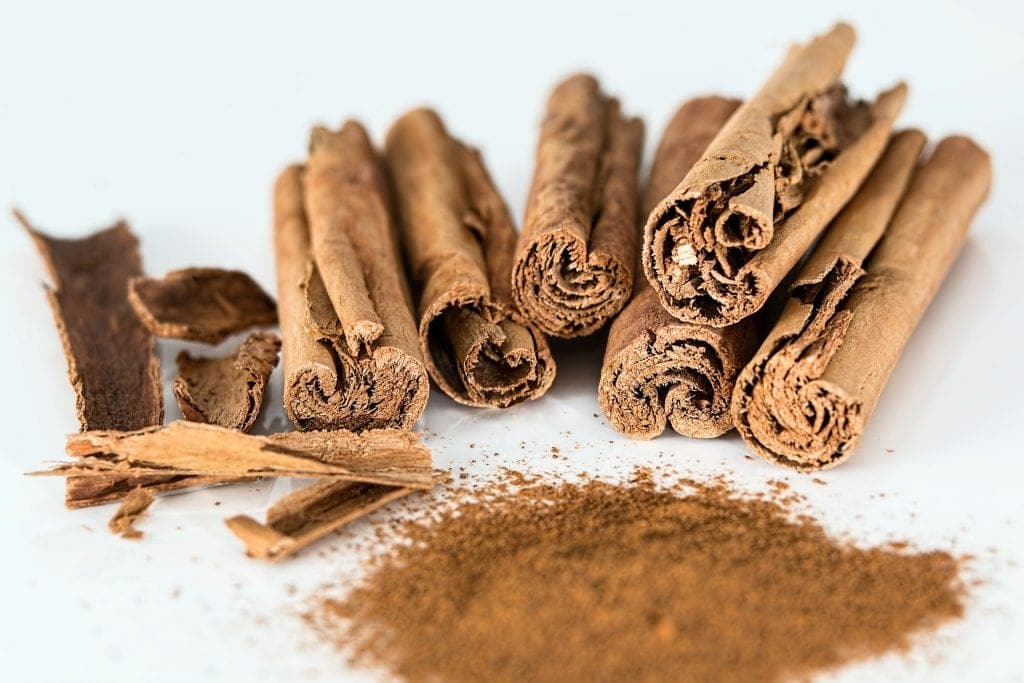
Airflow
Place your indoor seedlings/pepper plants in an area that gets good airflow.
If necessary, open doors or run a small fan to help circulate the air.
This helps strengthen your plants and makes an inhospitable environment for mold.

A fan can circulate the air and help prevent mold
Yellow Sticky Traps
Add yellow sticky traps to your plants to help catch insects that hatch from your potting mix or find their way indoors.
Some people use these on outdoor plants as well, but I choose not to because it’s possible to kill beneficial insects.

(Gnat larvae, in particular, are some of the most common pepper plant pests. If you have stunted pepper plants, larvae could be the reason why.)
Protect Outdoor Hot Pepper Plants
Outdoor peppers have their own special requirements. They’re not as sensitive as indoor seedlings, but they will endure the new stresses of an outdoor environment.
By the way… If you’re looking for organic ways to keep your pepper plants safe, be sure to check out The Chile Plant Hospital. This ebook helps you diagnose and treat common problems, such as insects and deficiencies, so you can fix things before they get out of hand.
Here’s how to make outdoor plants thrive…
Sunlight
Place your plants in an area that gets at least 8 hours of sunlight.
You may be able to get away with 6 hours, but I wouldn’t recommend it.
Again, be sure to space your plants apart for good air flow.

Mulch
Apply a thick layer of mulch, such as straw, to the top of the soil line.
This is an awesome defense against weeds, and it helps your chile plants retain moisture.
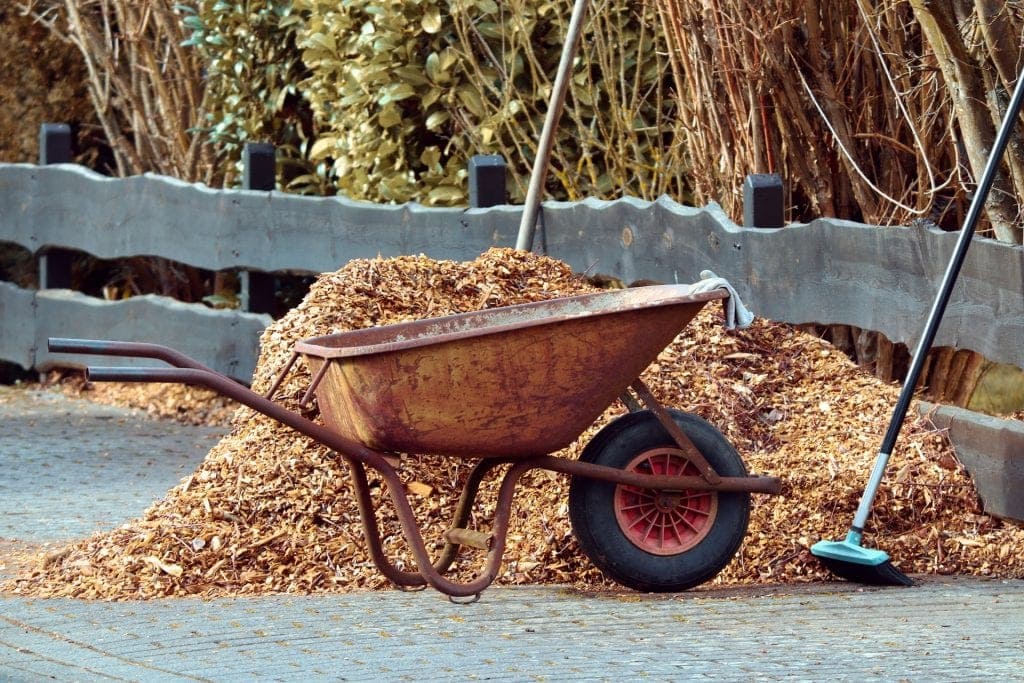
Beneficial Insects
Release good insects, such as ladybugs and parasitic wasps, into your garden. A good way to attract them naturally is to grow companion plants for peppers nearby.
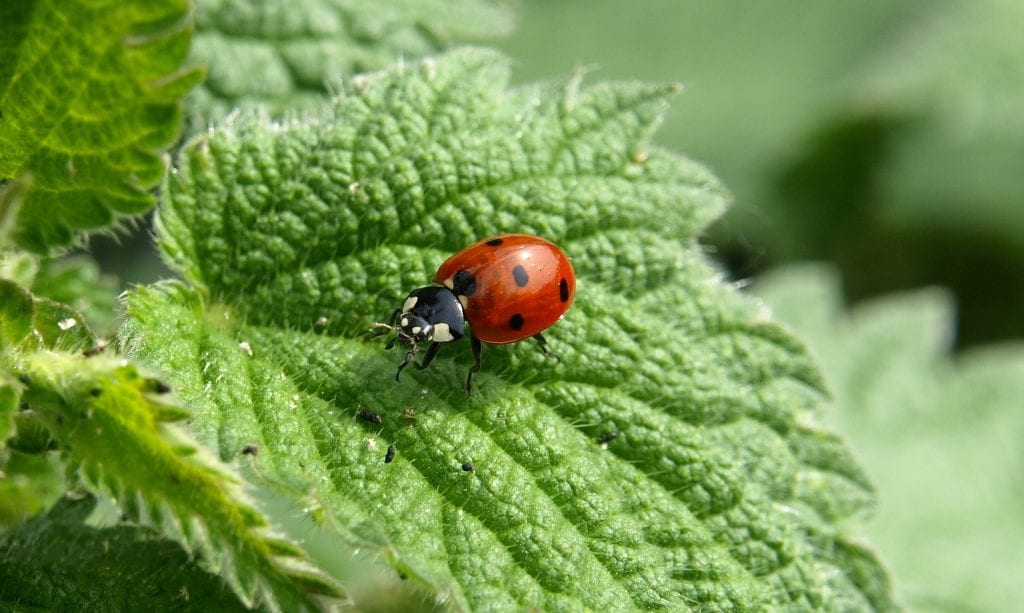
Water
Spray all plant parts with a strong blast of water to knock off any bugs that are present.
I’ve done this to help control whiteflies and aphids.
I recommend you do this in the evening when the sun is going down so your plants don’t inadvertently suffer from sunscald.
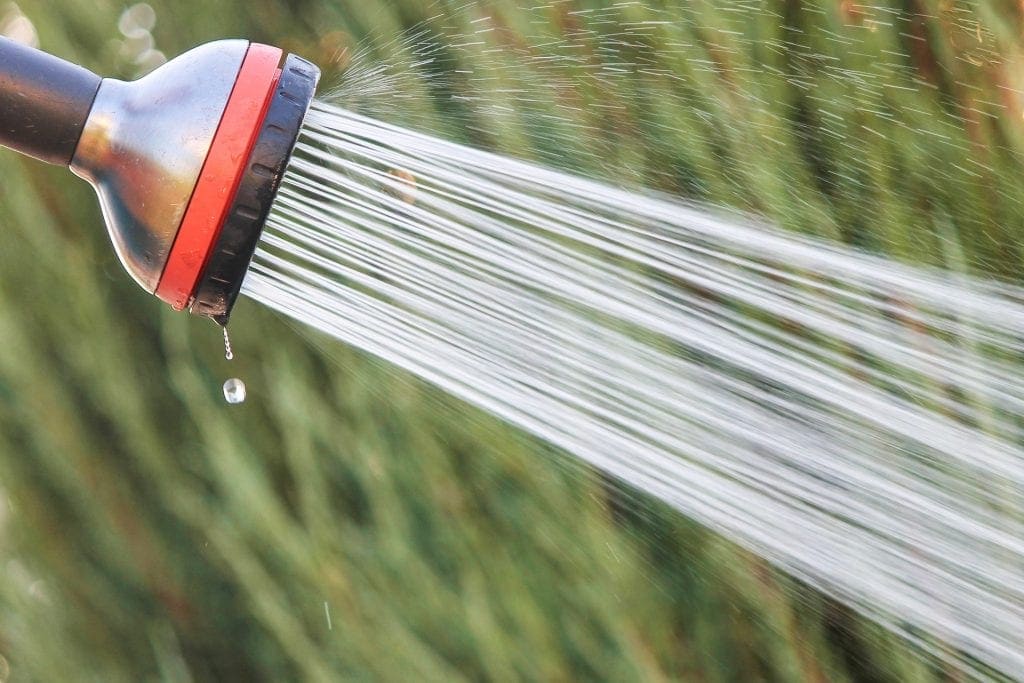
Pest and Disease Control Methods for Both Indoor and Outdoor Plants
These next solutions apply to all of your plants, whether inside or out. If you’re diligent, you will definitely prevent some nasty damage.
Clean Up Yard Waste
Regularly remove all of the fallen and/or diseased leaves from your plant.
I once got lazy with this and I had an outdoor infestation that you wouldn’t believe! Needless to say, this step really helps stop bug and disease activity.

Daily Monitoring
Inspect your plants every day for new bugs.
If you can’t do it that often, be sure to at least monitor everything weekly.
Cut off all leaves that contain insects and eggs, then quickly dispose of everything to get it out of your growing environment.

So there you have it. Please feel free to comment below and let me know what your favorite methods are for protecting those hot pepper plants!
(Be sure to check out the article on getting rid of fungus gnats for more pest control tips.)
More Posts On Growing Peppers In Containers:
- Transplanting Pepper Plants: When and How to Move Chillies to Bigger Pots
- Watering Pepper Plants in Pots (+ Bottom Watering Plants Printout)
- Fertilizing Pepper Plants: This Is What You Need to Grow Lots of Chillies
- How to Get Rid of Fungus Gnats on Plants (Organically)
- Stunted Pepper Plants? The Most Common Reasons, According to Expert Gardeners
- When to Pick Peppers (& How) + 2 Ways to Store Chillies
- Overwintering Pepper Plants: This Is What Keeps Them Alive for Years
- Can You Reuse Potting Soil? Here’s What You Need to Know
And for those of you looking for more information on taking care of your plants using organic methods… Make sure to check out The Chile Plant Hospital. You’ll discover some of the most common issues that affect chillies, and get the exact remedies you need to fix each problem fast. I’m always here to answer questions!


